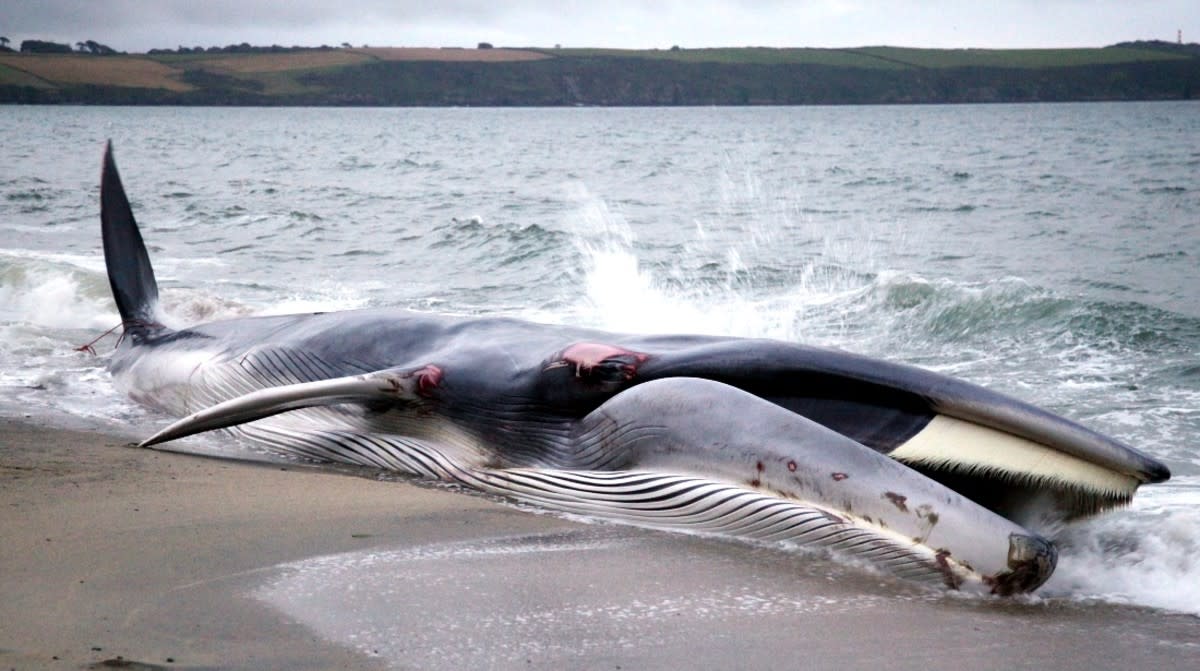Officials Race to Conduct Post Mortem on 54-Foot-Long Beached Whale at 'High Risk' of Exploding

Wildlife experts rushed to conduct a post mortem on a beached fin whale measuring 16.5 meters, or 54 feet, that was found washed up on Fistral Beach along the north coast of Cornwall, England on Wednesday morning. Fin whales, also known as finback whales, are the second largest species of cetacean on Earth after the blue whale.
But because dead whales can explode when gases accumulate within their massive carcasses, a volunteer with Cornwall Wildlife Trust said that the mammal had a "high risk of blowing up." If that were to happen, the ensuing disaster would be "very gassy and messy." The post-mortem examination helps experts identify the cause of death, as well as lets out any gas to prevent an explosion.
Photos of the deceased whale posted to social media by the Cornwall Wildlife Trust show the poor mammal with blood around its mouth, stomach, and fin.
"A Fin whale was reported at 7 a.m. this morning at Fistral beach, having been stranded on the early morning high tide, and was dead when discovered," the organization captioned the photos. "Reports of a Fin whale sighting off Pentire Headland were received yesterday and it is believed to be the same whale."
Anthea Hawtrey-Collier, project officer for the Cornwall Wildlife Trust’s Marine Strandings Network said in a press release that the whale was "in a really poor nutritional state" and was "obviously not a well animal," adding that the team was currently waiting for permission to be processed from the Cornwall Council, which owns the beach, before the team could can start an examination.
“When whales like this die and strand on our beaches it’s a really good way to gather information about these animals and to understand more about the health of our seas," Hawtrey-Collier added.
The whale was discovered by watersports teacher Rob Barber, who had been checking out the surfing conditions at dawn when he came across the dead animal.
"When I first saw it, it was a combination of feelings, I was awe-struck at such a magnificent beast," Barber told The Independent. "I felt shocked at first, I couldn’t work out what it was, it looked like a huge rock. Then I was super sad because it’s such a huge, beautiful creature."
In addition to the Marine Strandings Network, the large onsite team conducting the post mortem includes the Cornwall Marine Pathology Team from the Cetacean Strandings Investigation Programme (CSIP), Devon and Cornwall Police, the Royal National Lifeboat Institution (RNLI), and Coast Guard.
The whale has since been cordoned off from public view and members of the public are being advised to stay away from the area as the blood can be toxic.

